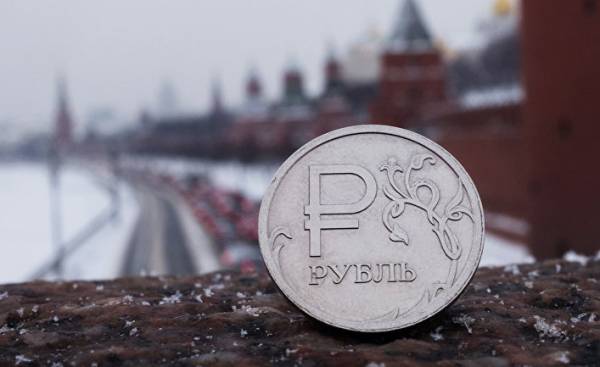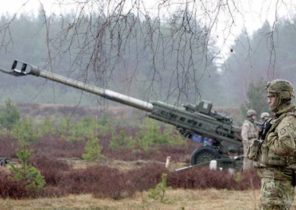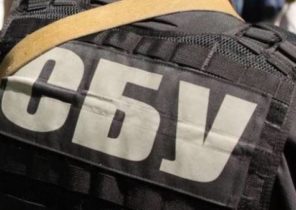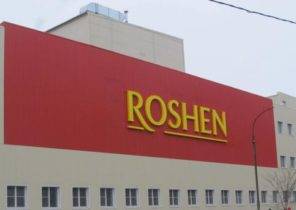
Safe Gennady Janov did not want to buy. But whoever tried to take over the savings of 58-year-old teacher of Moscow secondary school, the name which at his request was changed, that it would take considerable force. After all, the closet filled with books. And the money lie beneath, hidden under an old beech parquet. Short combination with a moving solid parquet boards and on light there are several packages with dollars and rubles. “That may seem old-fashioned,” — says Gennady. “But I never stole nothing”.
Of course, Gennady not all eggs put in one basket, as in Russia like to call this a measure to avoid risk. Most of the money today is in the Bank. Along with the money hidden in the house, the man could buy three cars. Or a plot of land far from Moscow. Conversely, if to be guided by the wishes of the Finance Minister, and Gennady is about to invest their savings in the interests of the state. In late February, the chief financial officer of Russia, Anton Siluanov, stated intention to produce in April, the special government bonds for the people. For a start we are talking about small amounts, approximately 20 to 30 billion rubles (about half a billion euros per year). You can participate starting from 30 thousand rubles.
The state needs money
Now the state is in urgent need every ruble, which was not long ago. Although a two-year recession in the country, it seems, overcome. However, the crisis contributed to the formation of financial holes. And access to Western capital markets due to sanctions remains limited. To reconcile expenses, new sources of funding.
The savings is really in demand. Although, according to polls, only a third of economically active Russians can do to save money. But despite the various crises, citizens have accumulated an impressive amount. Only the savings of individuals in the ruble and foreign currency accounts made in January, according to the Central Bank of 24.3 trillion rubles (392 billion euros). Those sums, which are stored under the mattress or flooring, there are only estimates. Statistical office, Rosstat, which considers only savings in rubles, estimates the share of cash in 17%.
Competition with banks
“Traditionally in Russia, there are large opportunities for savings, which are not transformed into investments,” said economy Minister Alexei Ulyukayev at the end of 2016 in an interview with the newspaper “Die Presse” for a few days before he was placed under house arrest as a result of questionable transactions in Moscow. “The accumulated savings amount to about 30% of economic indicators and total investment, by contrast, has only 19-20% of GDP. This is a huge discrepancy represents a potential for growth.”
Finance Minister Siluanov does not hide that it is primarily interested in the money “stored under the mattresses”. He lures the three-year issue of bonds with a lot of 7.5 — 10.4 per cent. This is an acceptable investment due to the lowest inflation (5,4%) after the end of the Soviet period. And yet: Bank deposits so attractive. However, the guarantee of such deposits is limited to the amount of 1.4 million rubles per depositor, while one issue can receive up to 25 million rubles for the bonds, which are guaranteed by the state Treasury at their nominal price.
Only bad experience
The problem is not in competition banks. The problem lies in the lack of trust of the population. If in Soviet times, Russians are actually fleeced more or less forced purchase of government bonds, in 90-e years, many fell for the owners of pyramid schemes without any financial protection of the state financial control. In addition, there were many cases of the depreciation of money and the collapse of the ruble in 1998.
However, with other investments of money from the Russian was a bad experience. This relates primarily to the IPO of the second largest Russian Bank VTB, which announced in 2007 about the release of the national stock exchange securities and when even the head of the Kremlin Vladimir Putin himself urged citizens to buy shares. Stocks fell. And since Putin was popular before the 2012 presidential election, he demanded the Bank again to buy back those shares at an acceptable rate. “I admit, without the political support of Putin, I would not go to this redemption,” said soon after, the head of VTB Andrey Kostin in an interview with the newspaper Die Presse. — We will never repeat this event, and we don’t consider it a model for General practice”.
How do these national bonds would be suitable for General practice, time will tell. In any case, the government will not be financially healthy with these popular bonds. To this end, their amount is too low. According siluanova, it is about more than how to inculcate financial literacy and investment culture.







